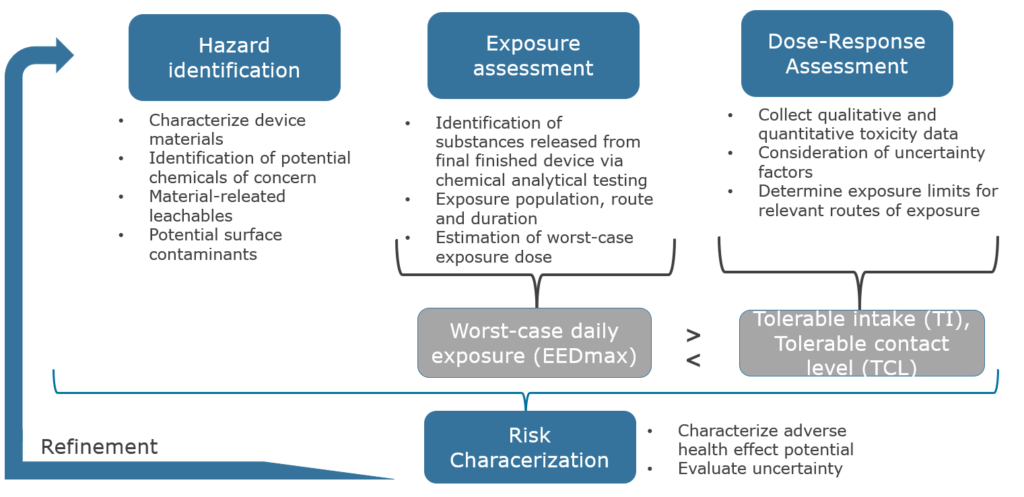
A toxicological risk assessment or TRA is a multi-step process that estimates the risk of adverse health events from exposure to leachable substances from a medical device. It encompasses the scientific review and evaluation of all relevant scientific data on the toxicity of, and the exposure to, a certain compound or mixture (Younes, 2014). Components of a toxicological risk assessment are shown in the figure.
Toxicological risk assessment services conducted by Medical Matters (MM) highlight possible adverse risks to patients’ health such as skin/eye irritancy, skin sensitization, genotoxicity, etc. by assessing an article and its ingredients against available information from in silico methods (e.g. QSAR and read-across), in vitro tests, animal studies and epidemiological data. The aim of a toxicological risk assessment conducted by MM is to ensure final finished poducts are biologically safe and to mitigate potential toxicological risks at an early stage in product development. Where information is not available on particular constituents, MM advises on toxicity testing to determine whether the constituents pose a significant risk. MM advices clients which services are most suitable to meet their particular requirements. Moreover, all assessments and tests are conducted to meet the requirements of regulatory bodies to ensure continuous market access in established and new geographic markets. TRA:s at MM are conducted in line with latest regulatory standards and guidelines. Get in contact for more background on TRA:s and check out the MM white paper on the topic.
